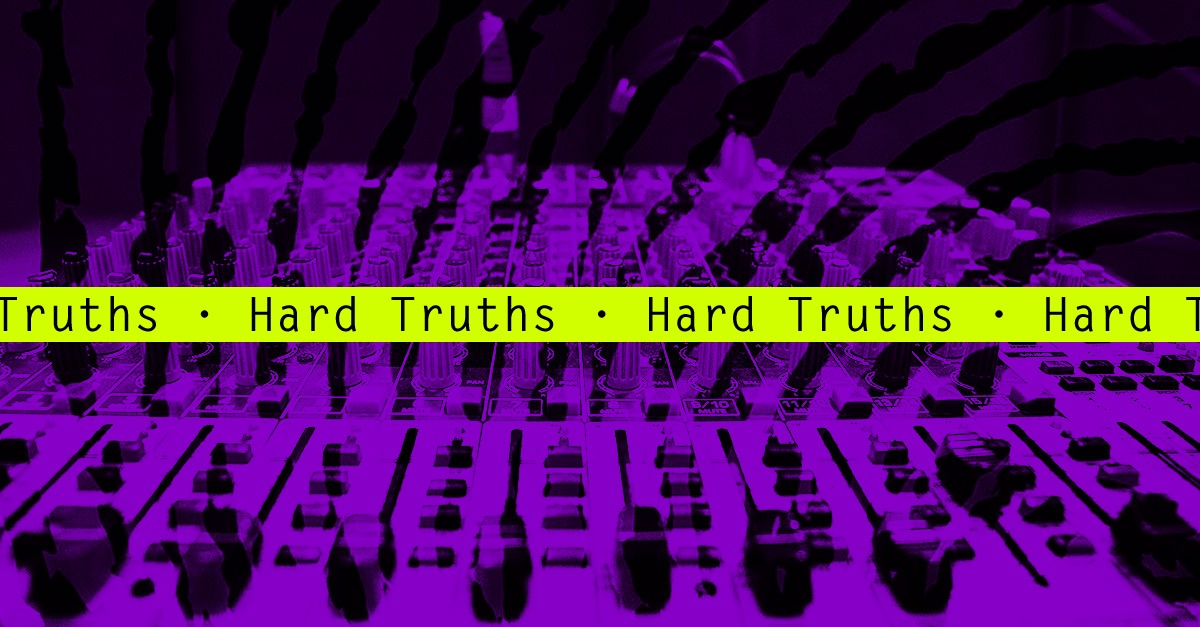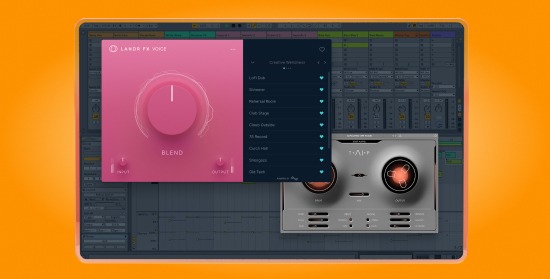Hard Truths: The Only Way to Get Better at Mixing Is Practice

Welcome to Hard Truths, the series on the LANDR Blog where we cut through the noise and take on a harsh reality from the world of music production. This is the advice you might not want to hear—but will make you a better producer.
Mixing is one of the most difficult skills to master in music.
A lucky few have natural abilities, but for most musicians mixing is complicated and frustrating with a steep learning curve.
What makes it worse is that a great mix has a huge impact on your listeners.
The presentation of your tracks matters for how people perceive your songs alongside others in their library.
All that means that getting better at mixing music is top of mind for most aspiring producers.
The obvious benefits and high difficulty are why so many pro audio companies tout their products as the solution to your mixing woes.
But here’s the hard truth: the only thing that will actually make you better at mixing is practice.
I’ll tell you why.
Mixing is about listening
Most music listeners are blissfully unaware of the complicated process that goes into making commercial recordings sound the way they do.
Most music listeners are blissfully unaware of the complicated process that goes into making commercial recordings sound the way they do.
But once you dive in and start mixing music yourself, you pull the curtain back for good.
Now when you hear a great mix, you can’t help but imagine what went on behind the scenes to achieve that incredible sound.
The difference in sound quality between a professional release and a DIY production can be shocking when you compare directly.
It’s enough to make you feel discouraged when you start to hear how short your own mixes fall.
But beginning to realize how far away you are is the first step to moving forward as a mix engineer.
How do you get there and what’s standing in your way?
Gear is a roadblock—but not the biggest one.
There’s at least one easy scapegoat for amateur mix engineers—gear.
Equipment is one of the first bottlenecks beginners point to when it comes to the overall quality of their end result.
Equipment is one of the first bottlenecks beginners point to when it comes to the overall quality of their end result.
Here’s another hard truth for you. If you sat down at the console of a high-end studio right now, you still might not produce a great mix unless you’ve already put in the time to develop your skills.
That’s not to say that quality equipment isn’t necessary—it is. But the law of diminishing returns looms large for high-end studio equipment.
The difference between a $500 mic and a $1500 mic is much, much greater than that between a $3000 and $8000 one.
Once you’ve reached a certain level of gear quality, meaningful differences between one tool or another are so small that they barely impact your bottom line.
Your ears, your understanding of your tools and your intuition take over quicker than you might think.
At that point, capturing your sounds correctly at the source and making smart mix decisions are far more important to the final quality of your finished mix.
Hot tip: Not all gear plays an equal role in the sound of your finished mix.
Your ability to make good mix decisions depends on how well your monitors or headphones can you show you the issues in your mix.
If you’re not sure where the weakest link in your system lies, consider upgrading your listening chain before other gear in your setup.
There’s no shortcut to real mixing skills
Gaining the instincts to make those decisions is what makes becoming a good mix engineer such a long process.
A lucky few start out with natural mixing skills, but even they need to spend time developing them to really benefit.
The biggest hard truth here? There’s no substitute for time spent and dedication to your craft.
No fancy new plugin or revolutionary technology will allow you to skip the legwork it takes to develop good mixing skills.
No fancy new plugin or revolutionary technology will allow you to skip the legwork it takes to develop good mixing skills.
Despite the radical advances in music tech, people were still mixing great sounding records at the dawn of the modern recording era nearly 70 years ago.
A lot has changed since then, but paradoxically a lot has stayed the same too. The basic skills it takes to mix are the same as they ever were!
Practice makes perfect
That all might sound a bit sobering, but here’s the upshot: almost anyone can learn to mix well if they work at it.
Rising to the top of the game takes a delicate balance of talent, luck and dedication—but that’s not the point.
Being good enough to create a palatable mix that presents the song well is an attainable goal for everyone.
Being good enough to create a palatable mix that presents the song well is an attainable goal for everyone.
If you’ve got a DAW and some basic monitoring gear, there’s a huge amount of ground you can cover on the road to good mixing skills.
The best advice is to never stop learning and improving. Stay focused on personal bests and don’t get discouraged when your results don’t measure up with the best work of sought-after professionals.
Mix often, learn from your mistakes and don’t be afraid to fail.
Don’t stop trying to get better
So what advice should you take from this hard truth?
You will get better at mixing if you keep working at it. That’s a pretty encouraging fact.
Mixing is a skill that starts with learning how to listen and could continue to develop for your entire life.
Gear guides, tips, tutorials, inspiration and more—delivered weekly.
Keep up with the LANDR Blog.
Latest posts
